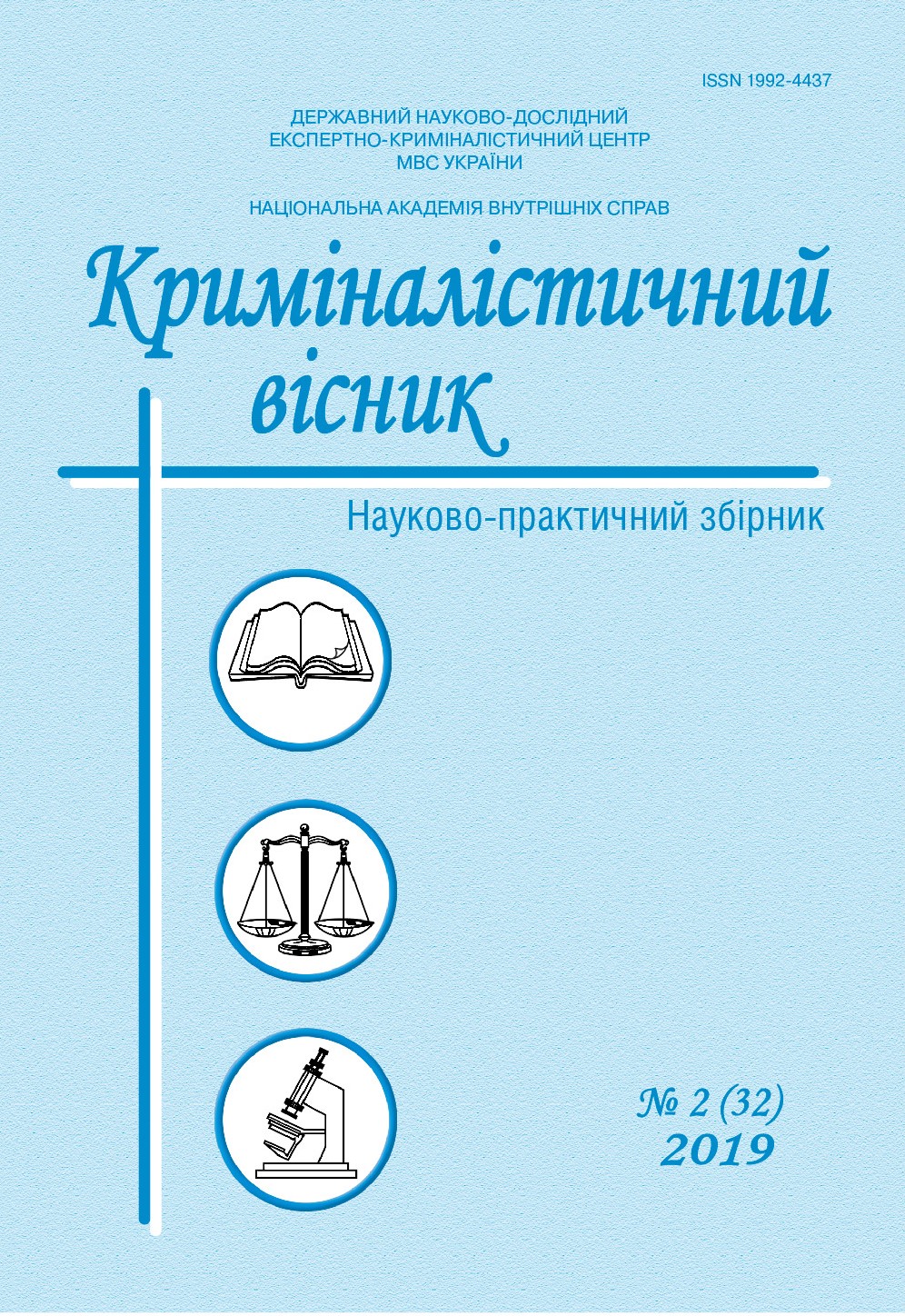HIGHLY QUALIFIED PERSONNEL TRAINING IN THE FIELD OF FORENSIC ACTIVITIES
DOI:
https://doi.org/10.37025/1992-4437/2019-32-2-22Keywords:
forensic activity, the State Forensic Examination Committee of the Republic of Belarus, nomenclature of scientists’ specialties, forensics scienceAbstract
The purpose of the article is to analyze current problems of highly qualified personnel’s training in the field of forensic expertise, that make difficult the development of both specific areas of forensic expertise and the forensic science in general; and to develop possible solutions to these problems in the nearest future. As a result of the research it is concluded, that the traditional attributing of forensic activity to the legal sciences (forensics theory is interdisciplinary and «synthetic» in nature, and of the many types of expertise only forensic is relevant to the legal sciences) in all the variety of forensic specialties does not contribute to its development or the development of its specific areas, thus creating significant obstacles to the training of scientific personnel (thesis devoted to methods and technologies of performing certain types of forensic expertise cannot be defended, because they are not legal in nature, so the development of
scientific and methodological support in the field of forensic activity is hintered in some way, despite its relevance and need for forensic practice). The article presents a detailed analysis of arguments in favor of the decision to supplement the list of science branches by which a degree in the field of forensic activity can be assigned; points of view of different scientists, world experience and statistics of forensic activity on the example of the State Forensic Research Committee of the Republic of Belarus. The initiative of the State Forensic Examination Committee of the Republic of Belarus, which proposed to provide a new specialty «Forensic activity» with its extension to other non-juridical branches in the nomenclature of scientists’ specialties, was supported as a result of complex researches and analytical discussions of the Higher Attestation Commission of the Republic of Belarus. Currently, a project of this specialty’s passport, which has found support among interested state bodies and organizations, as well as specialists of the working group of the Higher Attestation Commission of the Republic of Belarus, has been prepared. An official may be interesting and may be borrowed by other countries with related systems of certification of highly qualified scientific personnel (Kazakhstan, Russia and Ukraine). The reliability of the obtained results and conclusions is ensured by the use of the following system of scientific knowledge methods: method of formal logic (analysis, synthesis, deduction, induction, analogy, abstraction) – to determine the content of the considered issues; theoretical method – to analyse scientific and scientific-methodological literature; method of systematic analysis – to determine the direction of the research development in the field of highly qualified personnel’s training, in particular in the field of forensic expertise.
Keywords: forensic activity; the State Forensic Examination Committee of the Republic of Belarus; nomenclature of scientists’ specialties; forensics science.
decision on this issue is expected in the nearest future. The Belarusian experience, described in the article,



